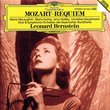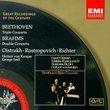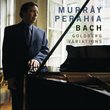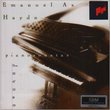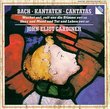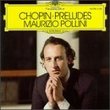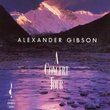| All Artists: Beethoven, Bernard Haitink, London Symphony Orchestra Title: Beethoven: Symphony No. 9 "Choral" Members Wishing: 0 Total Copies: 0 Label: Lso Live UK Original Release Date: 1/1/2006 Re-Release Date: 10/10/2006 Album Type: Import Genre: Classical Styles: Historical Periods, Classical (c.1770-1830), Symphonies Number of Discs: 1 SwapaCD Credits: 1 UPC: 822231109228 |
Search - Beethoven, Bernard Haitink, London Symphony Orchestra :: Beethoven: Symphony No. 9 "Choral"
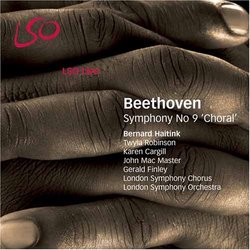 | Beethoven, Bernard Haitink, London Symphony Orchestra Beethoven: Symphony No. 9 "Choral" Genre: Classical
Beethoven's Ninth Symphony is a landmark in the history of music, changing the concept of what a symphony could be. The use of solo singers and a chorus in the final movement was revolutionary, and the emotional journey to... more » |
Larger Image |
CD DetailsSynopsis
Album Description Beethoven's Ninth Symphony is a landmark in the history of music, changing the concept of what a symphony could be. The use of solo singers and a chorus in the final movement was revolutionary, and the emotional journey to a glorious vision of a world of love and tolerance paved the way for idealistic symphonies to come. Similarly Requested CDs
|
CD ReviewsSuperlative Matt | London | 11/03/2006 (5 out of 5 stars) "This crowning glory of the Haitink/LSO Beethoven cycle is truly a magisterial account. Haitink has taken on board the strictures of the period brigade while retaining the weight and heart of the more traditional Beethoven protagonists. The result is a Beethoven 9 of power yet humanity, of intimacy yet impetus. Don't sniff at the sharp-edged textures of the 1st movement, nostalgic for the denser, more homogenous sound of earlier recordings. For this movement has ample weight and profundity, which is only enhanced by the clarity of interplay between the various sections of the LSO. Equally to the point, it is the starting point of Haitink's grand architectural understanding of this piece. (An analogy can perhaps be drawn with his approach to the first movement of the Brahms 4 also on LSO live.) He is taking us on a journey which conceuptualises this grandest of symphonies as one whole, not four (or even five) different parts. The second movement perfectly balances the deep-seated anxiety inherent in the music with is elements of joy and hope. The LSO's playing is crisp and egdy. In the wrong hands, the third movement of the 9th can be - let's face it - boring. But here, the tempi are efficient. Not only does Haitink not, by taking this movement quite briskly, lose the heart of these gorgeous variations; but he brings it to the fore. The LSO strings are sweet and rich as we have come to expect, the sound of the orchestra as a whole pure, deep and affecting. The fourth movement is stunning. Haitink and the orchestra balance sounds in unexpected but wholly convincing ways. The variations on the famous theme are played with crushing beauty by the orchestra, the melodic lines wonderfully balanced and shot through with empathy and rapport - between orchestra, composer and conductor, and between individual sections. Gerald Finley begins the choral section with a warmth I have never before heard, and his fellow soloists are all impressive (though, it has to be said, not equally so). The London Symphony Chorus is on top form, singing with soul, power and accuracy. Reaching the end of this movement will leave you breathless. It will also confirm the Haitink's architectural vision. Like no other performance I have heard, live or recorded, this is a thoroughly satisfying whole. The emotional depths are plumbed with tenderness and determination; yet the propulsion and momentum remind us of Beethoven's overall vision. Moreover, Haitink, the LSO and the LSC manage to make this familiar music sound revolutionary again. This, of course, is a live recording and one can feel it. The benefits are immediacy, the genuine sense of the moment. The disadvantages are barely perceptible. The LSO is a virtuoso orchestra; it has never seemed willing to forsake energy, drive and spirit for the gentile precision of some of the world's other great orchestras and it has never needed to. But for the thrill, one would barely realise that this recording was live, so accomplished is the playing. I was at the concert and it left me stumbling out of the Barbican Hall; this CD will never compensate for a live performance, but it as close as you are going to get." Magnificient, Crowning Conclusion to Haitink's LSO Beethoven John Kwok | New York, NY USA | 01/26/2007 (5 out of 5 stars) "Distinguished Dutch conductor Bernard Haitink's latest, truly relevatory, traversal of the Beethoven symphonies ends with this triumphant, enthralling interpretation of the 9th "Choral" Symphony in D minor. His magnificient interpretation is unquestionably one of the finest accounts of this symphony ever recorded, and definitely the best I have heard since Claudio Abbado's two distinguished recordings on Sony and Deutsche Grammophon with the Berliner Philharmoniker, using the same Jonathan Del Mar-edited Barenreiter Edition. Although strongly influenced by period instrument practice, Haitink strikes a fine balance between that and more traditional accounts of this symphony, without ignoring the swift tempi required of it from the relatively new Barenreiter Edition, and yet, yielding an awe inspiring, truly magisteral performance (Personally, I've fallen in love with Haitink's interpretation, finding it somewhat more engrossing than either of Abbado's.). Indeed, this latest recording of the Beethoven 9th Symphony may be the most dramatic, most exciting account that I've heard, and one that's worthy of all the critical and popular acclaim it has earned so far. Moreover, the sound quality is exemplary thanks to the superb job in recording this performance live during two concerts in late April 2006 by producer James Mallinson and his team of engineers on behalf of the LSO Live label. Haitink's interpretation is a no-nonsense, technically brilliant, yet still most mesmerizing, account of this symphony. He opens with a vividly intense first movement (Allegro ma non troppo, un poco maestoso) dominated by exquisite playing from the winds and strings. His treatment of the second movement (Scherzo; molto vivace) is neither as ponderous as any I've heard from the likes of Giulini and Karajan, nor is it as swift as Zinman's or Abbado's, but instead, sounds just right, showcasing once more the exemplary playing from the London Symphony Orchestra's winds and strings. Haitink's interpretation of the third (Adagio molto e cantible) and fourth (Presto - Allego ma non troppo - Vivace - Adagio cantible) movements are the most electrifying accounts I have heard, replete with excellent performances too from both the soloists and the London Symphony Orchestra Chorus in the memorable "Ode to Joy" which encompasses virtually the entire fourth movement (I haven't heard of the soloists before, but their singing is comparable to the finest I have heard in Abbado's and Karajan's recordings.)." Haitink & Beethoven going stronger than ever Pater Ecstaticus | Norway | 11/18/2006 (5 out of 5 stars) "With this magnificently fresh but powerful Ninth Symphony by Ludwig van Beethoven (and maybe with this whole cycle in general, but I don't know, because up till now I have heard only this recording), maestro Bernard Haitink has delivered what could maybe be called the 'ultimate' in this work, to stand aside any of the best.
This recording surely is a culmination and a crowning achievement of, firstly, a more than 50 year conducting career; secondly, a vision of a conductor who has been 'working with Beethoven' for more than 30 years (when Bernard Haitink recorded his first Beethoven cycle); and thirdly, the growing insights of period instrument practice slowly melting with 'traditional' performing tradition, cumulating into what could only be called 'the best of both worlds'. But the 'live' element must probably be taken into account here as well, as it is known that, generally, a 'live' Bernard Haitink is a 'better' one, coaxing the maestro to give his utmost. The man Bernard Haitink, it is known, really lives with and for his music, truly coming alive before the orchestra with attentive present audience to witness the man and the maestro at recreating the fruit of genius that is the music of Ludwig van Beethoven (Gustav Mahler, Anton Bruckner, ...). The orchestral playing is - as is so often the case with Bernard Haitink - absolutely clear, honest, with noble sentiment, but without any excess, which is good. There is no unnecessary lingering or dawdling at any time in this recording, always going purposely forward toward our goal. Above this, like a Dutch commentator said, we have 'warm strings, layering of different orchestral voices and transparent woodwinds and brass.' Combine this with the above said achievements of a long and impressive conducting career and the growing insights and mergings of performance practices, and you get maybe the best Beethoven imaginable. This Beethoven 9 sounds fresh and athletic, completely alive and brimming with youthful energy (Haitink is 77!): the 'muscle tone' directly 'visible' underneath the tight and smooth 'skin' of the wonderfully attentive and fresh playing of the London Symphony Orchestra, as it were. To my ears, it is almost incredible what unimagined orchestral colors, inflections and nuances maestro Haitink coaxes (if I may call it that ;-) out of the (obviously very willing) orchestra sometimes, things one has never before heard in this music in this way (a result of maestro Haitink's careful abovementioned layering of orchestral voices?), but always absolutely gorgeous. Listen, for example, to the magnificent third movement Adagio, which is taken at naturally flowing speeds, not as slow as von Karajan (1984) [15:54] or as fast as Philippe Herreweghe (1998) [12:26]. This Beethoven is so freshly inspired, 'healthy' and with so much spring in its step, that it will probably (hopefully?) last as a benchmark for a whole generation of listeners and performers. For fans of the LSO and devotees of Bernard Haitink, I think this is unmissable. I for one love this recording and as a result I wholeheartedly recommend it to anyone without any reserve." |

 Track Listings (4) - Disc #1
Track Listings (4) - Disc #1